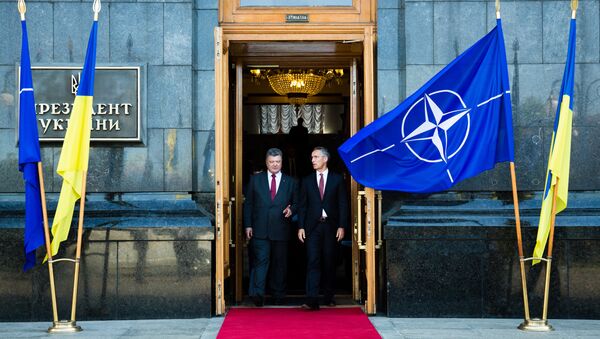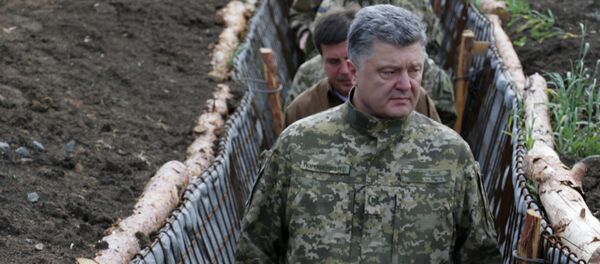It should be noted that in 2014 Ukrainian President Petro Poroshenko had already made a similar appeal to the US, but his request was then flatly denied by the White House.
However, it appears that the Ukrainian leadership may not actually be interested in the non-NATO ally status itself but rather in the additional preferences that may be secured during the bargaining process, Russian political analyst Semen Uralov told Sputnik Radio.
"The issue of whether Ukraine will be granted this status is still being negotiated. But what matters is not the status itself. What matters are the motives of the Ukrainian elites, what their game is," Uralov said.
According to him, Kiev is pursuing the ‘major non-NATO ally’ status due to several reasons.
"They want to be in the vanguard of anti-Russian confrontation, and in that regard they expect to secure the support of the new US administration. They played this game with the Obama administration, and now they want to play it with the new administration," he said.
Also, Uralov added, the Ukrainian elite may attempt to use this affair simply to get more money.
"The chief economic idea professed by the Ukrainian elite essentially comes down to receiving foreign aid and then plundering it. Therefore, the non-NATO ally status offers a way to secure additional funding," he said.
And finally, Kiev may use this move to placate the radical far-right groups to fan the anti-Russian sentiment in the country, Uralov surmised.
Currently 16 countries hold this status, including Argentina, Australia, Bahrain, Egypt, Israel, Japan, Jordan, Kuwait, Morocco, New Zealand, Pakistan, the Philippines, South Korea, Thailand, Afghanistan and Tunisia.


